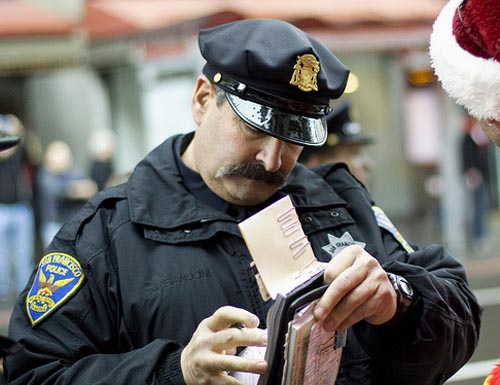 Most penalties for dangerous driving tickets are designed to prevent the perilous behavior from reoccurring. If you’re fined for driving 80 miles per hour in a 60 mph zone, for example, you are more likely to think twice before driving too fast the next time around. But when drivers don’t seem to mind the penalties, are state enforcement agencies responsible for adopting stronger measures to get habitually dangerous drivers off the road?
Most penalties for dangerous driving tickets are designed to prevent the perilous behavior from reoccurring. If you’re fined for driving 80 miles per hour in a 60 mph zone, for example, you are more likely to think twice before driving too fast the next time around. But when drivers don’t seem to mind the penalties, are state enforcement agencies responsible for adopting stronger measures to get habitually dangerous drivers off the road?
Last week, 22-year old Danae Marie Miller was arrested for gross vehicular manslaughter when she allegedly hit a bicyclist with her car while driving drunk. The bicyclist was killed, in the fourth fatal bike-car accident in Newport Beach in less than two years. Soon after, the LA Times revealed that Miller had been cited for 16 traffic violations since she got her license in 2005. Six of these citations were for excessive speed, but Miller also received combined tickets, like speeding while talking on her handheld cell phone, which is illegal in California.
Could this fatal bicycle accident have been prevented if authorities had imposed stricter penalties on Miller’s early traffic violations? Perhaps drivers who show a consistent tendency to drive dangerously and disregard the safety of other drivers should lose their driving privileges. Of course, this is only half the battle. In addition to roads riddled with habitually dangerous drivers, Bicycle Times Magazine reported recently that California courts are notoriously easy on drivers in bike-car accidents.
Even in the case of fatal bicycle accidents, drivers often get off the hook, the report found. Oddly, this hazardous loophole is the result of little more than administration details. In the 1970s bicycle use boomed in cities across the country. But since the roads didn’t yet have the infrastructure to support cyclists, bicycle accident lawsuits flooded the courts. “Until then, motor vehicle offenses were criminal,” David Hiller of Washington State’s Cascade Bicycle Club told Bicycle Times. “Then, in exchange for waiving the right to due process, and to unclog the courts, the trade off was those cases would be handled in civil court.”
Due to a number of factors, it appears that the deck is stacked against pedestrians and cyclists when it comes to safety on city streets and highways. First of all, drivers who consistently drive dangerously are rarely given more than a slap on the wrist or a relatively modest financial penalty. And even when drivers are taken to court for hitting bicyclists, they often catch a break due to California’s administrative loopholes.
With 3,100 California traffic deaths each year (nearly 10 percent of the nationwide figure), it’s clear that the state needs to get proactive about cracking down on dangerous drivers and correcting laws that harm cyclists and pedestrians, who are the most vulnerable. Doing so will be an important step toward stopping fatal accidents, like the tragic collision allegedly caused by Danae Miller last week.
Photo credit: greenkozi

